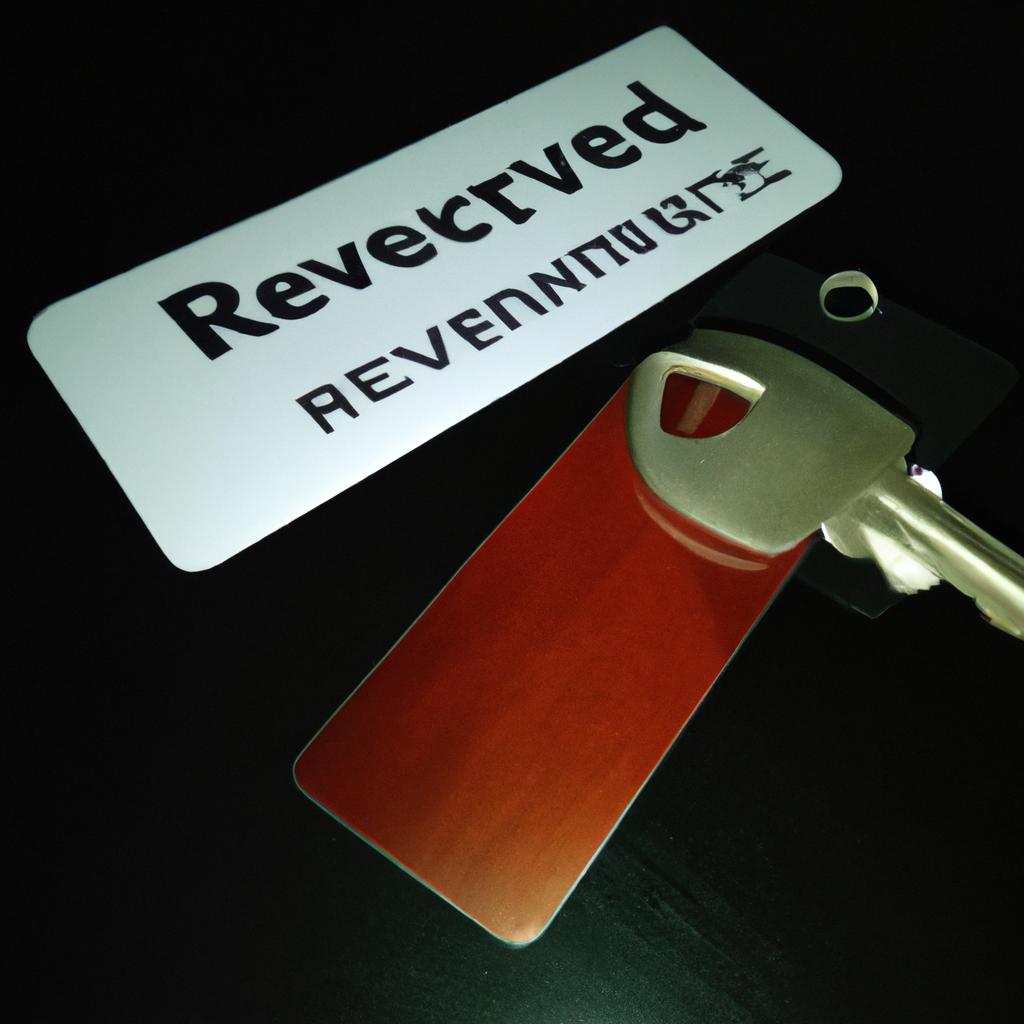Introduction
When you are looking to book a hotel stay, etiquette is key to ensuring a smooth transaction. Hotel staff appreciate patrons who show respect and courtesy when making their reservations and interacting with other guests. This guide will explain why it is important to demonstrate good hotel reservation etiquette, as well as provide practical tips on how to make the process easier for both customers and the hotel.
Hotel staff have to juggle multiple tasks and requests from guests. Following the simple dos and don’ts outlined in this guide will help ensure the best experience for everyone involved. Good hotel reservation etiquette will also help make sure that potential issues are handled smoothly and quickly, allowing everyone to enjoy their stay just as much as they would expect.
Do: Research and Reserve Ahead of Time
Making a reservation in advance offers numerous advantages. When researching hotels, it is important to take the time to read reviews and compare prices. Doing so will help ensure the best stay possible. Here are some tips for researching and reserving ahead of time:
- Look up reviews from previous hotel guests.
- Compare prices on various websites.
- Book well in advance of arrival date to get the best rates.
- Consider joining a loyalty program that offers discounts and other rewards.
- Call the hotel to double-check availability and that all special requests are noted in the booking.
Booking in advance also helps avoid disappointment, as last-minute bookings may be too late or not offer the amenities desired. Advance research also ensures that the reservation is within the budget of the hotel-goer. Whether traveling for leisure or business, taking the time to plan ahead is essential for a successful stay.
Don’t Rely on Third-Party Booking Sites
When booking a hotel stay, it’s important to be aware of the drawbacks of using third-party booking sites. These sites are convenient, but they can come with hidden fees or exclude you from loyalty programs.
Often when using third-party booking sites, you don’t know exactly which hotel you’re going to get. It’s possible that the booking site may identify the room as being in a specific hotel, but when you arrive you might find out that you’ve been booked into a different property altogether.
Sometimes third-party booking sites will impose additional fees associated with the reservation such as tax fees or cancellation fees. These fees, which may be higher than those charged directly by the hotel, are not always made clear upfront.
Furthermore, some hotels only allow you to gain loyalty points when you’re dealing with them directly, rather than through a third-party booking site. This means that you don’t get the rewards or discounts that come with loyalty programs when booking through these sites.
For all these reasons, it’s often best to book directly with the hotel itself if you can.
Do: Ask About Special Rates
When it comes to booking a hotel, it pays to do your research. Many hotels offer discounts or special rates for certain groups, such as government employees, AARP members, or AAA members. It is always worth checking to see if there are any valid discounts that you could take advantage of.
Your hotel stay doesn’t have to cost an arm and a leg. Ask the hotel’s staff about any special rates or discounts available before you book. It could potentially save you a significant amount of money.
If you don’t qualify for any of the special rates, there are still other options available. Look into packages which may include breaks on your room rate or other services. Some hotels offer packages that include meals, spa treatments, or tickets to attractions. Shop around to compare prices and services to find a good deal.
At the end of the day, make sure you’re getting the most out of your hotel stay. Asking about special rates can help you to save money, allowing you to enjoy your vacation without being weighed down by unnecessary expenses.
Don’t Arrive Too Early
When making a hotel reservation, it’s important to pay attention to the check-in policies outlined by the hotel. Most hotels have set check-in times of 4pm or later. While many times hotels may be able to accommodate an earlier check-in time, it’s important to respect the policies set forth by the hotel since they are based on the resources and staffing availability of the hotel. It’s best to check ahead for the exact check-in time and plan your arrival accordingly in order to avoid any delays or frustration.
Additionally, if you know that you will be arriving early and there is no room available for you to check-in, it’s important to remember that it’s common practice for hotels to not allow guests onto the premises until the check-in time. It is best to make sure that you are aware of this policy before travelling in order to avoid any disappointment or confusion.
Do: Provide Accurate Identification
When you make a hotel reservation, identifying yourself accurately is an important part of the process. Most hotels will ask for photo identification to verify the customer’s identity and check that the payment information matches the guest. This is done as a legal requirement and helps ensure the safety of all guests by verifying their identity.
Having accurate identification on hand will also help speed up the process as you’ll be able to present the necessary documents immediately. Depending on the regulations in the country, this could include an ID card, driver’s license, passport, or other valid documents. It is advised to keep the required documents handy during the booking process so that the check-in can go quickly and smoothly.
Don’t Forget to Update Your Reservation Information
Before checking into a hotel, it is important to make sure your reservation information is up-to-date. It is important to update your contact information, as this is how the hotel will reach out to you if there are any changes to your booking. Additionally, you should make sure your room preferences are recorded accurately, such as if you desired a king-sized bed or requested a smoking room.
Keeping your reservation information updated is not only beneficial for the hotel, but also for yourself. If any issues arise, the hotel staff will be able to contact you quickly and resolve the situation. Being aware of your contact information can also prevent miscommunication and misunderstanding. If the hotel has updated information in their system, you can avoid uncomfortable situations such as being billed for the wrong number of nights.
Updating your reservation information is a simple task that could save many headaches during your stay. Before you check-in, take a few moments to confirm that the hotel has your correct contact information, desired room type, and any other special requests. This small effort could make a significant difference in ensuring a comfortable stay.
Do: Stay Informed
No matter what type of hotel stay you’re planning, it’s important to stay informed throughout the entire process. From the moment you make your reservation online or over the phone, be sure to write down the reservation number and other important information associated with it.
This includes details like the check-in date, check-out date, the type of room you are booking, and any special requests you may have. Keeping this information on hand will make it much easier to reference when you have to enter your information at the front desk.
The confirmation number that you receive is more than just a way to keep track of your reservation. It’s a way to ensure that you don’t get double-booked or charged too much for your stay. Also, if you need to make any changes or alterations to your reservation, the confirmation number is usually the fastest way to do this.
Finally, be sure to update your contact information (email address, phone number, or mailing address) if it has changed since you made the original reservation. This is especially important for online reservations, as the hotel staff will likely use these details to contact you if there is an issue with your stay.
Don’t Abuse Amenities
When booking a hotel stay, it’s important to remember not to take advantage of the hotel’s amenities. Stealing linens, soap and other items violates the hotel policy and is also considered unethical and unlawful. Not only is it wrong, but it could result in financial penalties or even criminal charges.
Before checking out, make sure to double check the room for any items you may have taken without permission. Even accidentally forgetting to put back a bottle of shampoo or a towel can end up costing you money, and some hotels might charge a fee if you leave behind items.
Additionally, it’s important to be conscious of property damage while staying in a hotel. Avoid writing on walls or furnishings, as this could also result in fines or legal penalties.
Following these guidelines ensures that your stay at a hotel is a pleasant experience and helps to protect you from expensive fees or criminal charges.
Do: Discreetly Dispose of Trash
It is important to always clean up after yourself when you are in the hotel. Accommodations should not contain used paper towels, tissues, and other waste left behind by guests. To avoid leaving a mess behind, it is essential to properly dispose of trash in the provided trash receptacles. This helps to keep the space tidy and presentable for the next guest.
When disposing of any trash, it is important to be discreet. Always make sure to bag your trash and close any receptacles when leaving the room. Additionally, it is important to double-check for any missed items before making your way out. Taking the time to properly manage your waste will help ensure that the room is presentable for the next set of guests.
Don’t: Destroy Hotel Property
Hotel property should be treated with respect. Writing on the walls, for example, or mishandling furniture and other items, can cause damage that could lead to hefty fines or even criminal charges. It is important to adhere to hotel regulations and to treat the property as if it were your own. After all, the hotel staff wants their guest to be comfortable and enjoy their stay, so respect should be given in return.
Such damaging behaviors are not only unethical but also expensive. Hotels take these matters seriously, and consequences for damaging property can include anything from a warning to a hefty fine or even a criminal charge in severe cases. So its best to avoid any behaviors that will damage the property, no matter how small.
Conclusion
When it comes to hotel reservations, it pays to be mindful of etiquette. Researching hotel reviews, booking in advance, and inquiring about special rates are all part of making sure that your stay is as smooth as possible. At the same time, it’s also important to avoid relying on third-party booking sites, arriving too early for check-in, failing to provide accurate identification, neglecting to update reservation information, abusing hotel amenities, leaving messes, and damaging hotel property. By following these tips, you can ensure that your next hotel stay is worry-free and enjoyable.
comments: 0

